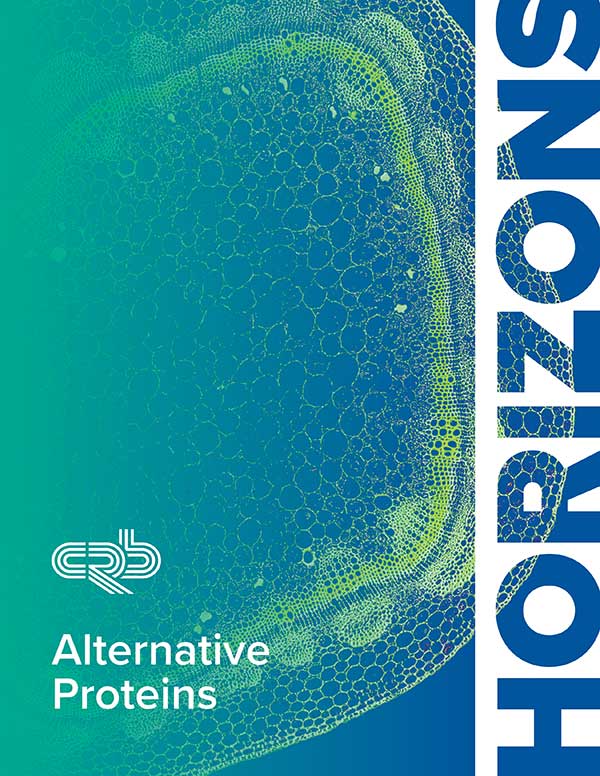As the food industry faces accelerating demand for alt proteins, a new report from CRB – a leading provider of sustainable solutions to the food industry – has revealed some of the most important issues affecting the alt protein market.
Issues including costs, regulation, and scalability challenges were identified based on survey responses from more than 300 industry leaders.
“Better, and smarter, tools and processes are clearly needed to address this growing industry challenge”
The “Horizons: Alternative Proteins” report from CRB provides insights from experts in the industry and explores the rewards and risks of traversing the rapidly-growing market. While global demand for alt protein grows as a solution to an increasingly food-insecure world, the report aims to explore the challenges of ramping up efficient, safe, production.

The key points from the report include:
- Scale-up: Nearly three-quarters of respondents have not yet reached commercial manufacturing, and those that have are operating with unsustainably narrow cost margins.
- Speed to Market: Construction of manufacturing infrastructure, both new buildings and retrofits, is required to seize first-mover advantages. Respondents indicate they will have an average of 11 CAPEX (Capital Expenditures) projects in the next three years. The progression to large-scale commercial manufacturing will require larger budgets and integrated delivery solutions.
- Regulation: With more than three-quarters of respondents saying their companies should follow the same rules that apply to traditional protein products, over 50% are anticipating new regulations in the next two to three years. The report also reveals confusion over the role of the FDA in regulating alt proteins.
- Alternative Dairy: The cost of goods is by far the top production barrier faced by alternative dairy producers, followed by quality control, lack of hygienic design knowledge or support, cross-contamination challenges, and access to capital.
“What is interesting about the results of the Horizons: Alternative Proteins report is that its findings managed to pinpoint a key barrier faced by producers of plant-based meat and dairy alternatives long suspected and now known to be true,” said Christopher Shanahan, Global Agriculture Research Director at Frost & Sullivan.
“It’s not the lack of raw materials but it’s the inherent energy requirement in processing and bottle-necked throughput that is the limiting factor. Better, and smarter, tools and processes are clearly needed to address this growing industry challenge,” he added.
A full copy of the Alternative Proteins report can be downloaded here.




